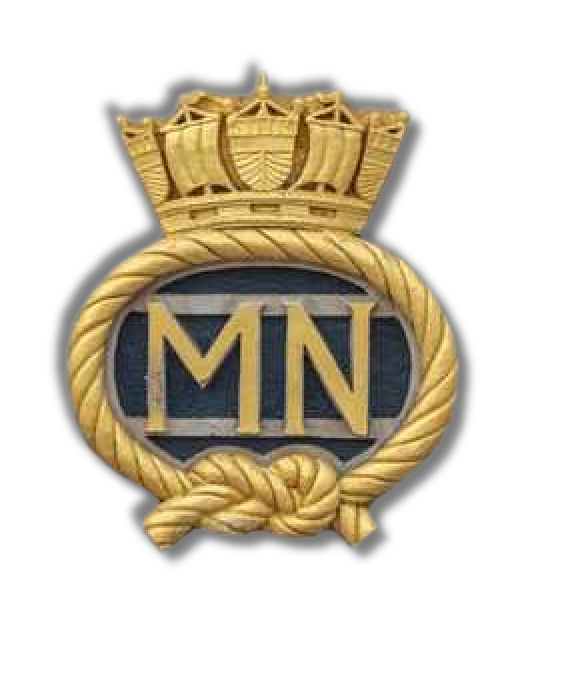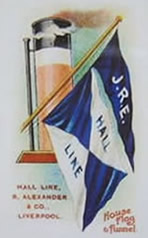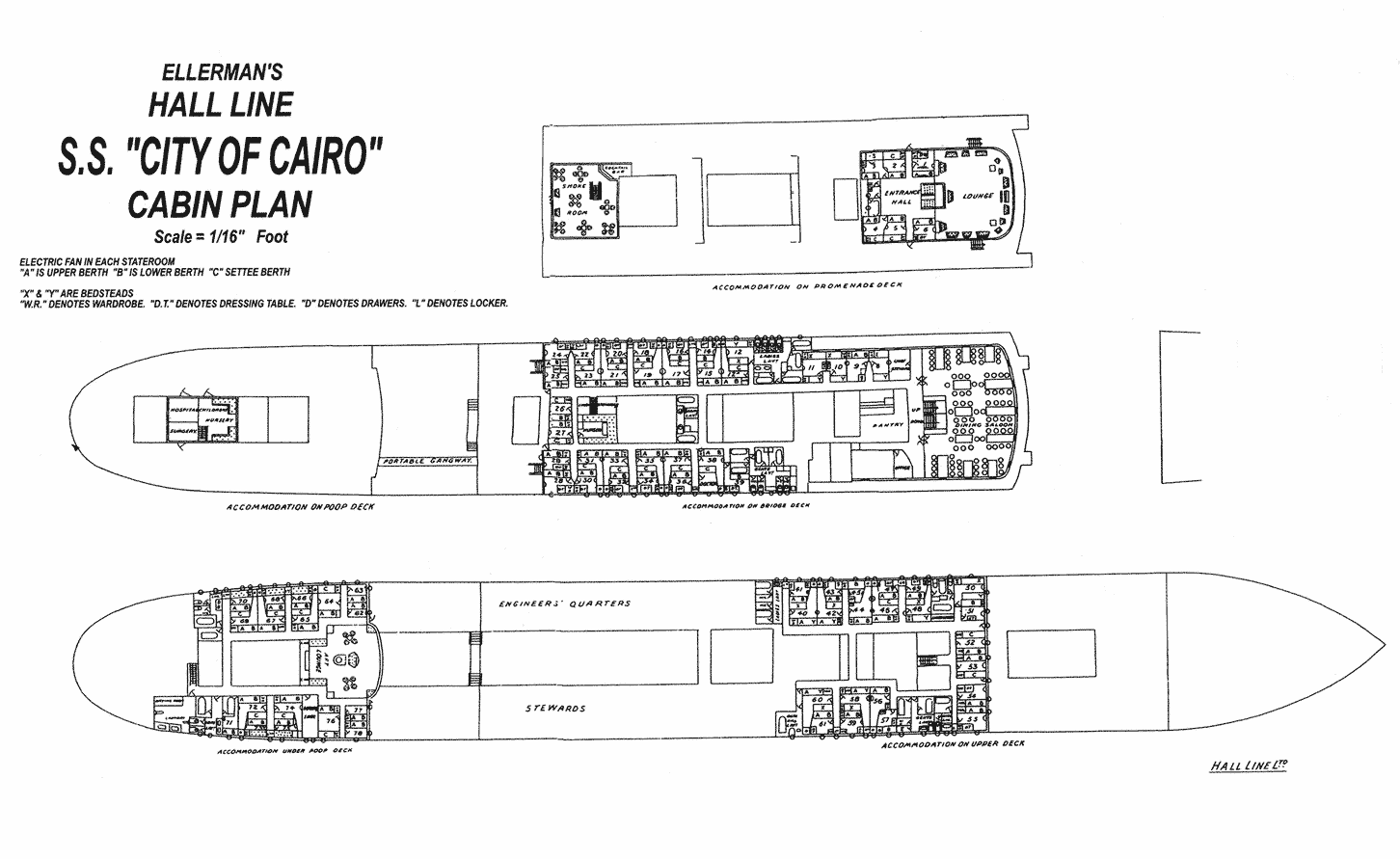My Father's Story
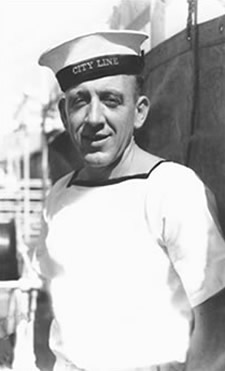
Q.M. Malcolm (Calum) MacLean
My father was born in 1922 on the Isle of Barra in the Western Isles of Scotland. He was affectionately known as the because of his fair skin and blonde hair, and like many islanders of his generation he had a natural love for the sea.
In 1938, after a short time as a fisherman, he joined the Merchant Navy. This was the life he loved and, despite the trials and horrors of the war, was to be his life for the next 22 years.
During World War II, being in the Merchant Navy was an extremely dangerous occupation; ships were lost from the day the war in Europe was declared until the very day the war ended. The Merchant Navy lost more men per capita than any of the fighting services and my father had many lucky escapes. On 21st January 1941 he signed off the ss CAPE NELSON and on its next voyage, just a month later, the ship was torpedoed and sunk by U-95 whilst part of convoy OB.288.
In June 1941 he joined the tanker LAURELWOOD, but sometime prior to this he had completed a gunnery course at one of the D.E.M.S. gunnery centres. As a merchant seaman gunner his duties would involve assisting the military gunners on the ship's defensive armament when the gun crews were closed up; over 150,000 merchant seamen received gunnery training during WWII at D.E.M.S. centres at home and abroad. Those ships that carried armament were known as D.E.M.S. (Defensively Equipped Merchant Ships).
He joined the Ellerman Hall vessel ss CITY OF CAIRO in Glasgow on 28th May 1942. The ship usually operated between India, South Africa and the UK. On 1st October 1942 the CITY OF CAIRO departed Bombay (unescorted) on route to the UK via Durban and Cape Town, South Africa and Pernambuco (now called Recife), Brazil.
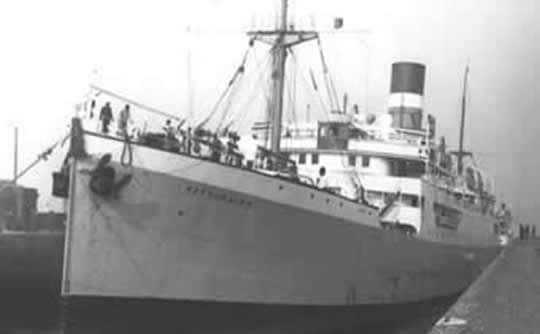
Ellerman Hall Line ss CITY OF CAIRO (1915 - 1942)
It was on the Cape Town to Pernambuco leg of their voyage home when the ship was struck by a torpedo from U-68 commanded by Karl-Friedrich Merten. The order was given to abandon ship and everyone made for their boat stations. My father's station was with No.5 boat, which was also the station of the CITY OF CAIRO's master: Capt. W. A. Rogerson. After about twenty minutes had passed Merten delivered the coup de grace and released a second torpedo. The CITY OF CAIRO sank by the stern.
The U-68 surfaced and its Captain informed the survivors of their position: approximately 2000 miles from Brazil, 1000 miles from Africa and about 500 miles from the island of St Helena. He then uttered the now famous phrase: and the submarine then departed the scene. Merten admitted in a documentary made about the sinking in 1984, that he didn't think the survivors stood any chance of making it to safety.
What then followed was an extraordinary account of seamanship, endurance, courage and determination. Capt. Rogerson gathered all the boats together and decided to make for the tiny island of St Helena. Such a small island (10.5 miles x 6.5 miles) in such a vast ocean was going to be very difficult requiring precise navigation. Thankfully, Rogerson's navigation was spot on and after two weeks at sea the main body of survivors was spotted and rescued by the ss CLAN ALPINE not far from the island. On route three boats became detached from the main group and their stories are the most remarkable of all.
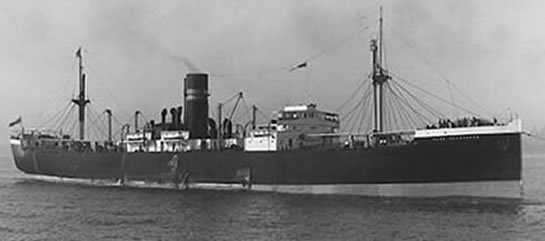
ss CLAN COLQUHOUN
Courtesy of Raymond Forward
After the ordeal of the sinking and the sea journey in an open boat, my father was landed at St Helena. After recuperating in the island's hospital, my father and some of his colleagues: QM Patrick MacNeil, DEMS gunners John Vass Morris, Albert Cockhill, Walter Allan Edwards, John Martin, Hugh Miller Porterfield, David Skinner and sixty two Lascar seamen boarded the Clan Line steamer ss CLAN COLQUHOUN on 9th December 1942 (on a conveyance order) on route to South Africa. They arrived in Cape Town on 30th December 1942 to await their onward repatriation to the UK, and in the case of the Lascars CLAN COLQUHOUN took them back to Bombay.
According to my father's official seamans record it is recorded that he was repatriated to the UK on the Reardon Smith Line steamer ss QUEEN CITY. After years of research, this information has been proved to be incorrect. It clearly states on my father's record that he was repatriated 'per "QUEEN CITY" on conveyance orders'. ss QUEEN CITY was torpedoed on 21st December 1942 but the dates didn't tie in with my father's records. The entry in my father's records should have read 'repatriated per "QUEEN MARY" on conveyance orders'. This very simple clerical error took me 10 years to sort out.
My father was repatriated back to the UK, sailing from Cape Town, on the troopship "QUEEN MARY" on 10th April 1943. This was "The Grey Ghost's" twentieth trooping voyage of the war, she had earlier sailed from Gourock on 23rd December 1942. The ship arrived back in Gourock on 22nd April 1943. My father and his mates were landed to continue their war...
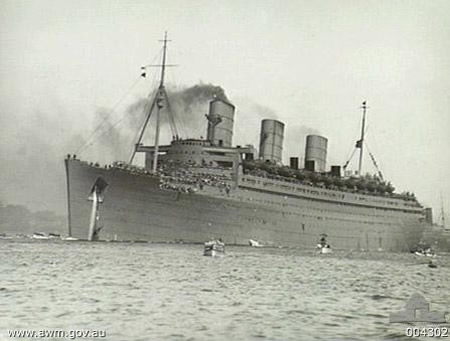
Australian War Memorial Neg No. 004302
HMT QUEEN MARY, wartime livery Courtesy of the Australian War Museum
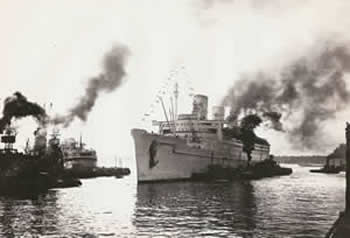
HMT QUEEN MARY, Southampton, 1945
Courtesy of Harley Crossley
Dad sailed on another seven ships before the end of the war. They were relatively dangerous voyages, but nothing like his experiences on CITY OF CAIRO. From joining the service in 1938 until 1945 He served on a total of nineteen ships - by the end of the war, eight of those ships were lost to enemy action.
My father stayed on in the Merchant Navy after the war, serving in another thirty-five ships, sailing mainly with the Ellerman Line but also with many other well-known shipping companies now, sadly, like our Merchant Navy, almost consigned to history. Finally, after he met my mother, he "swallowed the anchor" in 1960. See this page for a list of all My Father's Ships
He worked, as a boatman, for the next seven years in the small Highland communities of Knoydart and Kingairloch before moving to Fort William, were he lived for the rest of his life. My father always missed the sea.
Malcolm (Calum) MacLean died on the 20th January 1996 aged 73. Very much missed by all his family.
"Our family chain is broken, and our lives are not the same; But as God calls us one by one, the chain will link again".
The photo below (top) (below left) was taken on 30th November 1959 after my dad's discharge book was lost. Nine months later he left the Merchant Navy after 22 years service.
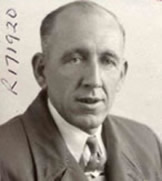


My dad never saw his medals. I enquired and received them from the Registry of Shipping and Seamen in Cardiff. He was awarded the 1939-1945 Star, the Atlantic Star, the Italy Star and the War Medal.
Chual e'n ceol bu mhilse leis nuair thill e dhachaidh"
"Who farthest away e'er did roam Heard the sweetest music on returning home"
"Sarah's Song" © Phil Cunningham Click the play button to listen to the music:
"We ourselves feel that what we are doing is just a drop in an ocean. But the ocean would be less because of that missing drop"
